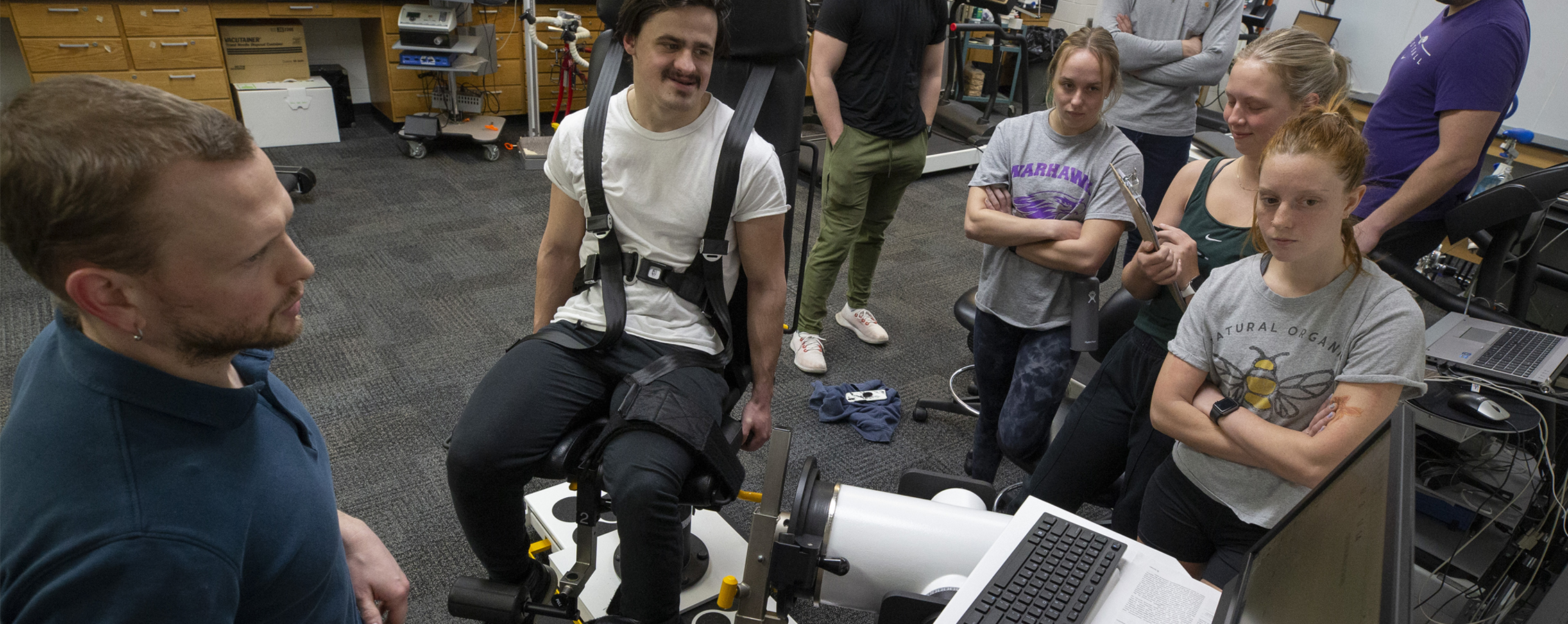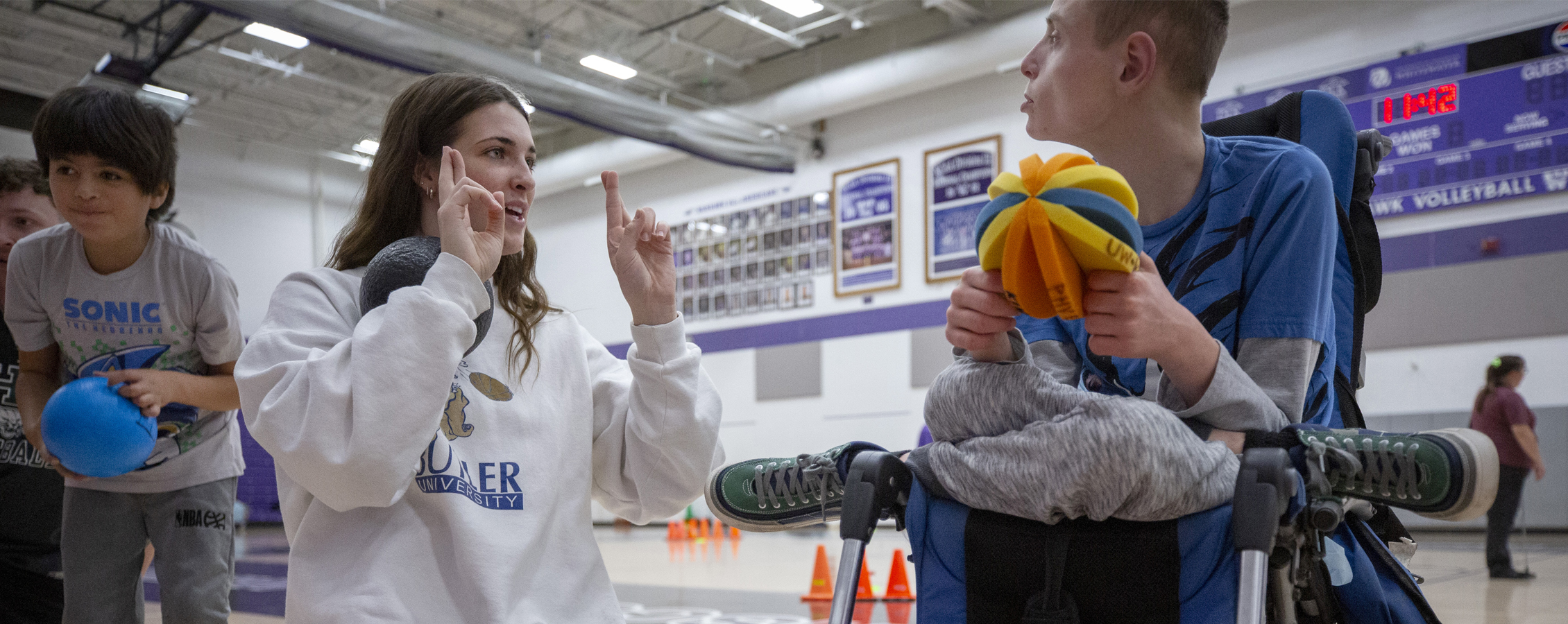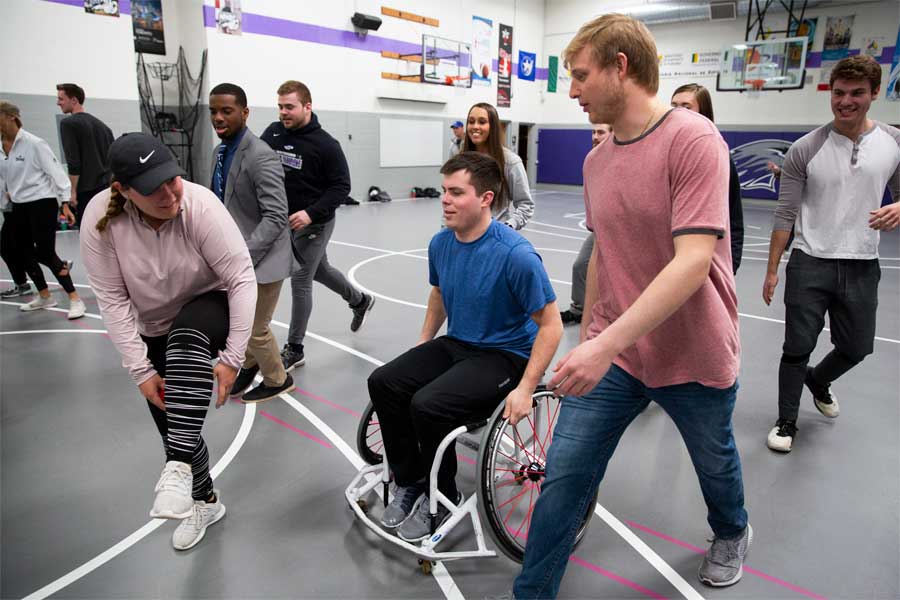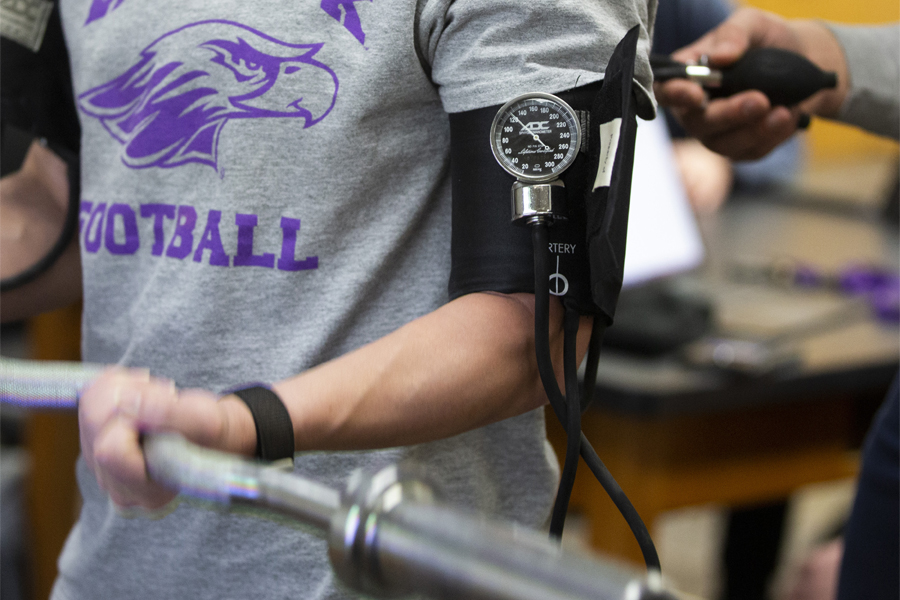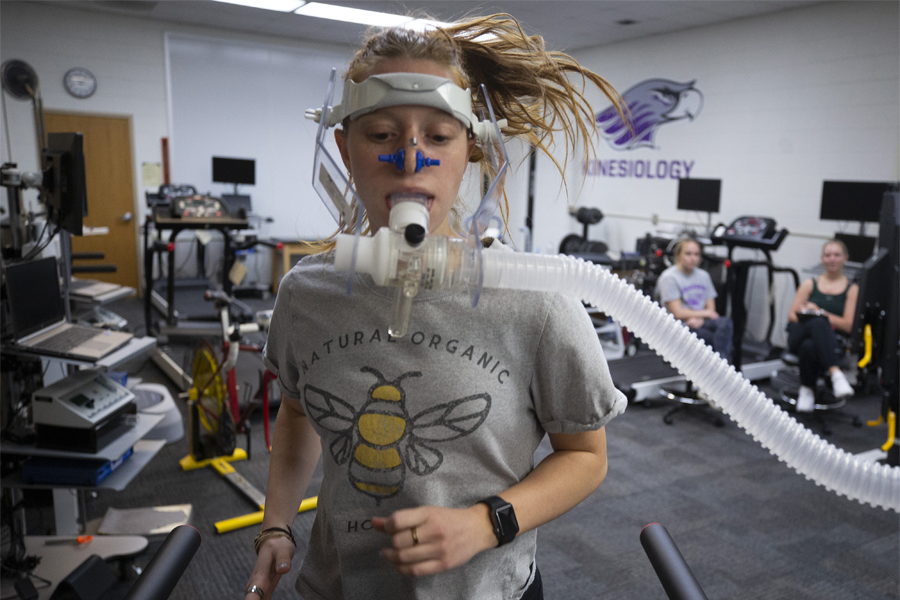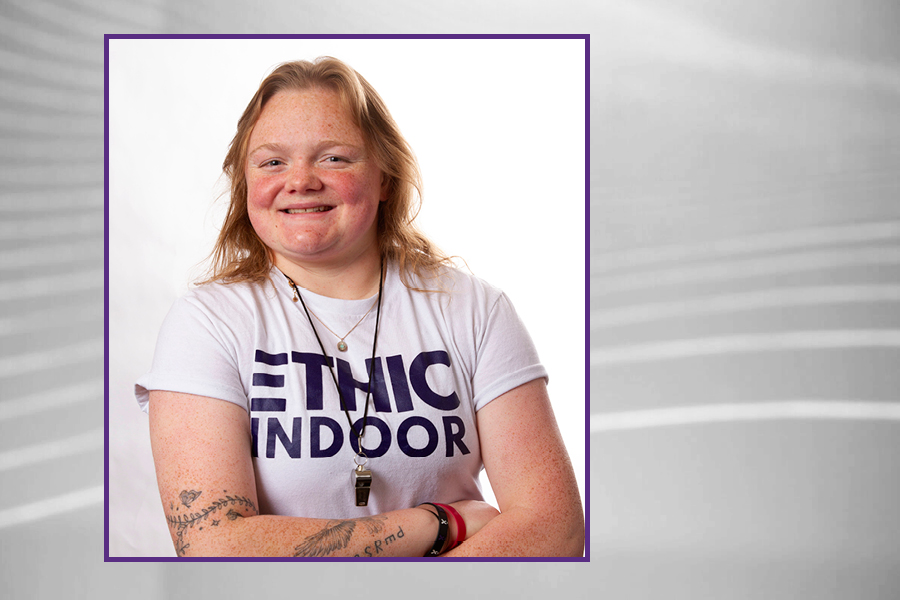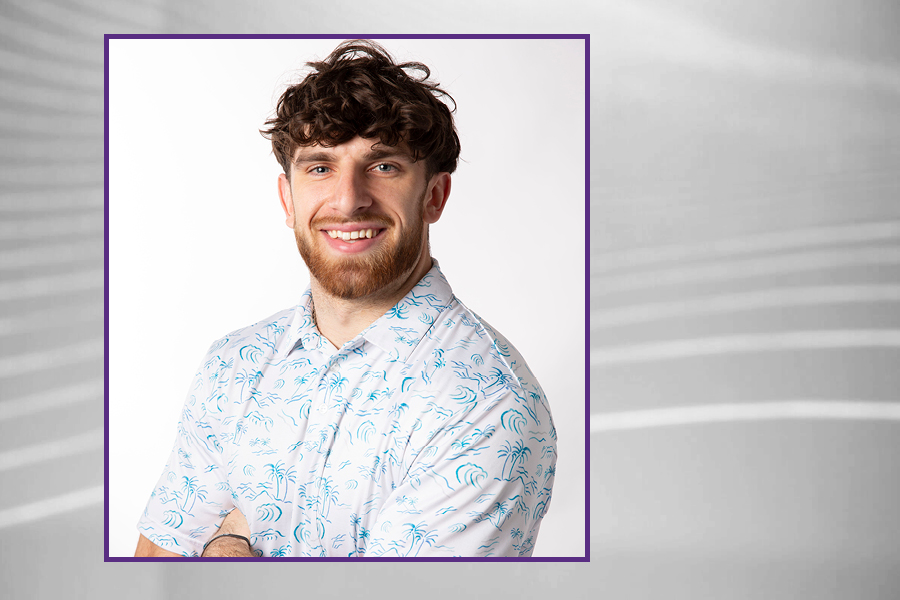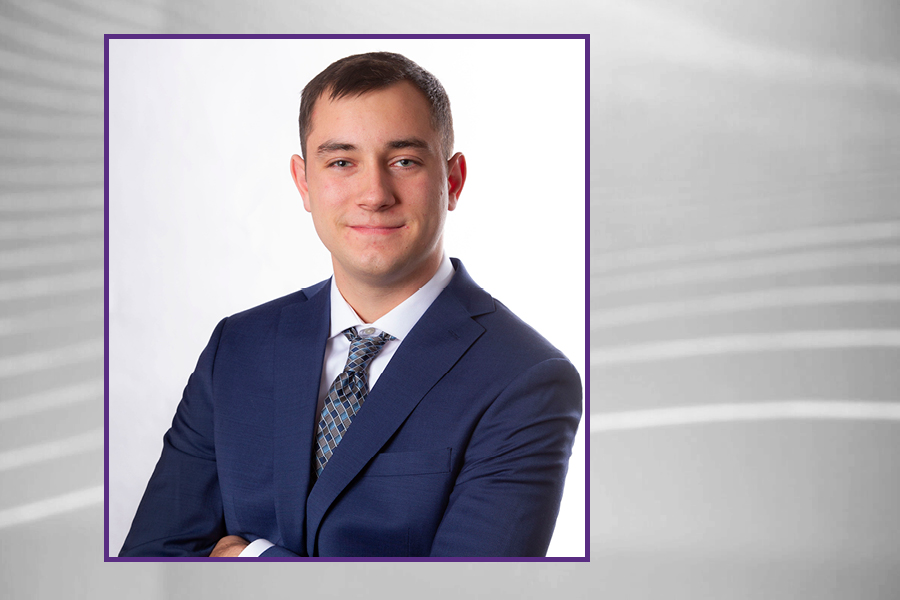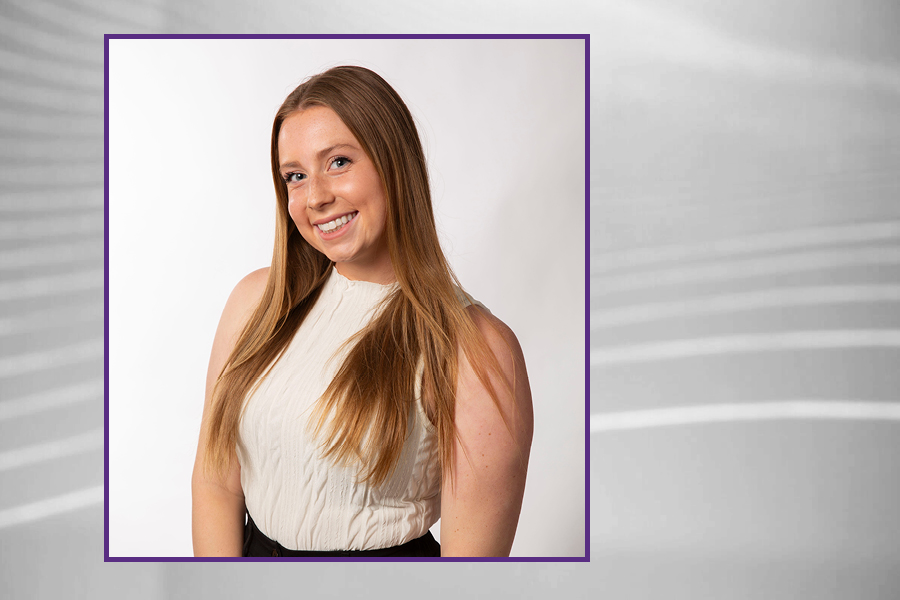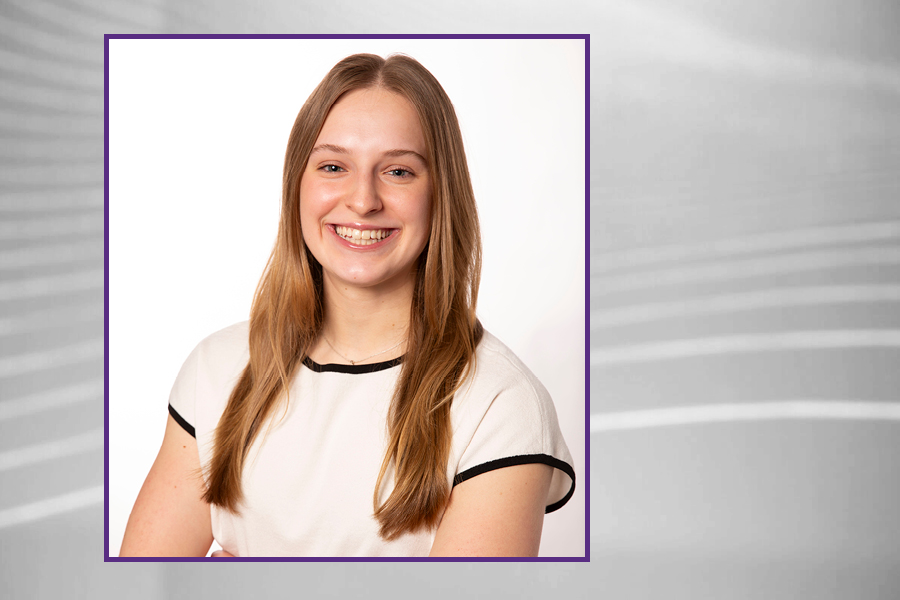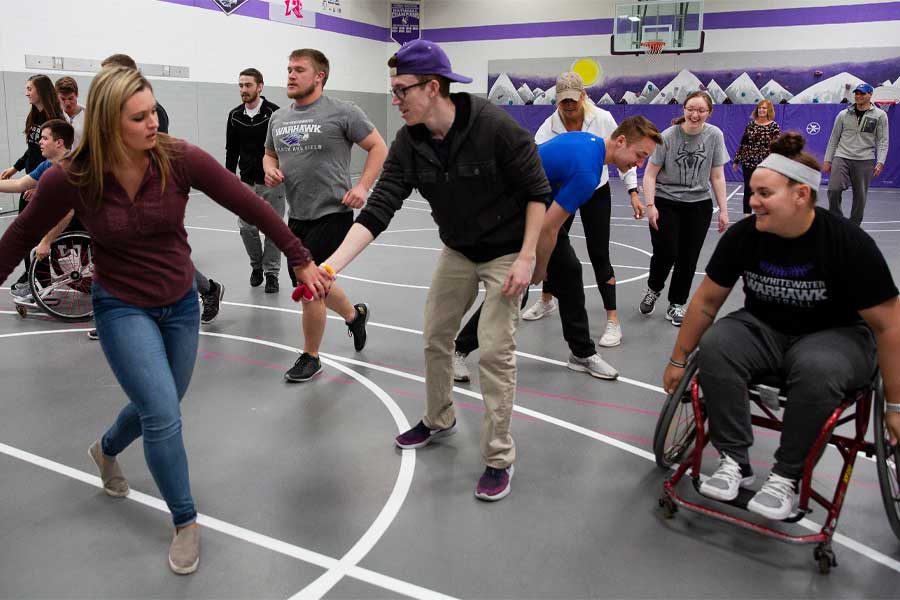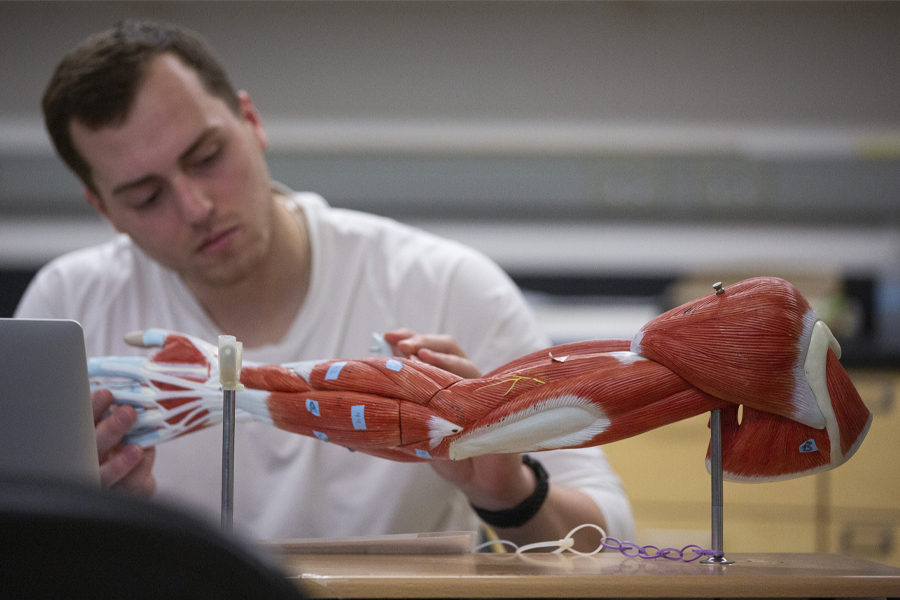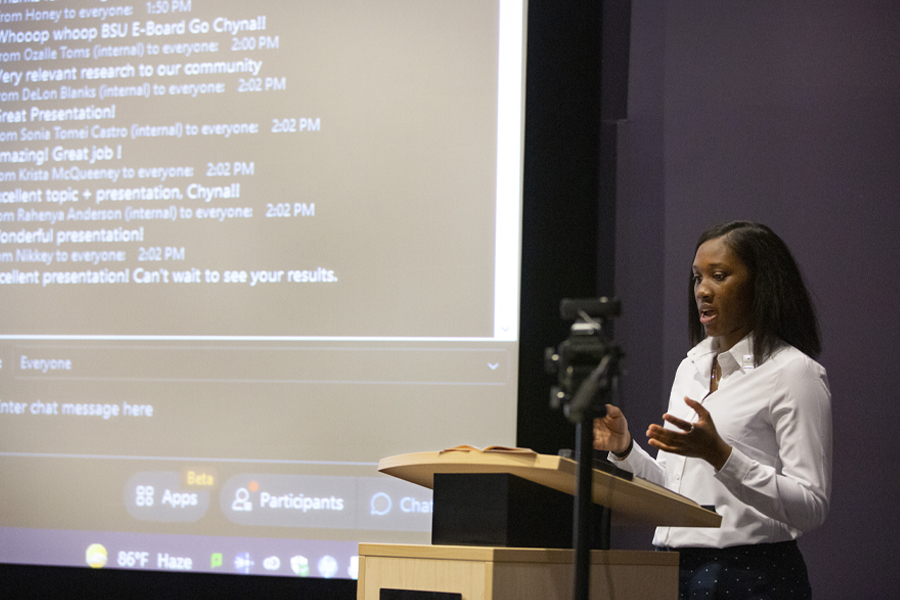HUMAN PERFORMANCE
Bachelor's Degree Program
Human Performance and the world of exercise sciences is a broad and exciting field.
We offer a robust and versatile program that prepares you for careers in exercise physiology, fitness management, recreation and sports management, sports performance, health rehabilitation, and other areas related to health, wellness and physical activity.
In addition to our on-campus program, we offer the same high-quality curriculum and instruction in an online format.
CAN WE BRAG A LITTLE?
What our Human Performance students do
Hands-on and cross-cultural experiences
Human Performance students have many opportunities to gain professional experience on and off campus.

Internships
Human Performance students complete their 300-hour internships in a variety of settings including fitness centers, hospitals and clinics, professional or collegiate sports teams, and park and recreation departments.
Service learning
Embedded into our curriculum you’ll find several courses with a service-learning element. For example, students plan and host health fairs, lead after-school programs, develop activity programs for senior centers, and lead Performance Stations during Wisconsin Special Olympics competitions.
Research
Students engage in research with a faculty mentor, which can lead to co-authoring a paper or presenting at a national conference.
On-campus employment
Many of our students gain professional experience through on-campus employment in recreation sports, at the fitness center, or with our coaching staff and athletic trainers.
Campus and community involvement
UW-Whitewater offers several student organizations that are of interest to Human Performance students.

ACTIVE Human Performance, Sport and Recreation Professional Development Club
Invites guest speakers, brings students to conferences and job fairs, and provides other work to support professional development of students.
Outdoor Adventure Club
A student-led club that provides outdoor and professional development opportunities by leading outdoor experiences. Common adventures include river and lake canoeing, rock climbing adventures, ski trips, and camping/adventure trips (including trips to nearby Ottawa Lake State Park and Horicon Marsh, and more distant trips to the Badlands National Park/Custer State Park in South Dakota, and Great Smoky Mountain National Park in North Carolina and Tennessee).
Pre-Health Associates of Today
Pre-Health Associates of Today (PHAT) is for pre-health majors or students interested in the health field and helping each other in advancing their career paths.
Our facilities
Classrooms, laboratories and activity spaces are located in the Williams Center, Kachel Fieldhouse and surrounding outdoor locations. Facilities are also utilized in the Roseman Building, the Student Athletic Complex and other locations across campus.
The Williams Center and the Kachel Fieldhouse includes the following facilities:
- 200 Meter Indoor Track with Multi-Purpose Courts for Basketball, Volleyball and Tennis
- Golf Hitting Cage and Putting Green
- 4 Racquetball Courts
- Basketball Gymnasium
- Wrestling Gymnasium
- Gymnastics Gymnasium
- Volleyball Arena
- Swimming Pool and Diving Well
- Fitness Facilities for Weight Training and Aerobic Exercise
- Specialized Laboratory and Studio Facilities
The Human Performance Laboratory provides teaching, research and service programs through state-of-the-art equipment. Four fully-equipped multi-student laboratory stations utilize computer systems on customized carts with dual monitors. Each of the four carts includes a Vacu-Med Vista VO2 Lab metabolic analysis system, Cardio-Card electrocardiography system, BIOPAC system and pulmonary function analysis system. Each of the four teaching stations includes a cycle ergometer, upper body ergometer and treadmill. Additional equipment includes a research-grade metabolic analysis cart that uses AEI analyzers and Vacu-Med Vista software and interfaces operating on a computer system with dual monitors. The cart also includes a Cardio-Card electrocardiography system, BIOPAC system and capabilities for measuring oxyhemoglobin saturation. Other equipment includes a Velotron Dynafit Pro with VariCrank that uses 3D, SpinScan, Coaching and Wingate software. The Human Performance Laboratory also has capabilities for exercise biochemistry that include a glucose and lactate analyzer, two UV/Vis spectrophotometers, water bath, analytical balance and related equipment to analyze blood and other tissues. Capabilities for DNA analysis are available across campus in Upham Hall. A computerized hydrostatic location is available in a separate location in the Williams Center complex.
Our updated motion analysis lab features equipment such as a CSMi isokinetic dynamometer, force plates, Parvo Medics metabolic cart, tendo unit, and a Biodex Balance System. The lab also has upper body and cycle ergometers and other equipment used for aerobic and anaerobic capacity tests.
This equipment is used for class laboratories, honors options, and undergraduate research projects, such as measuring muscle imbalances, likelihood of muscular injury, and sports training program assessment.
What our Human Performance graduates do
Human Performance jobs: Career success
Our program prepares students for an array of careers in the performance sciences
Human Performance graduates work in a variety of settings as:
- exercise physiologists (in clinical rehabilitation and sports performance settings)
- strength and conditioning coaches (in collegiate athletics, at fitness centers, or in clinical settings)
- community health coordinators (with nonprofits, hospitals, or corporations)
- sports/recreation managers (in civic organizations, nonprofits, or state/national parks)
Many of our Human Performance graduates continue on to master’s degree programs in areas such as:
- exercise science
- nutrition
- recreation management
- sport management
- occupational therapy
- physical therapy
- public health
- nursing /medical school
Our faculty
Among our faculty you’ll find award-winning teachers and leading exercise scientists with impressive credentials:
- Lindsey Greviskes co-authored a paper on caring interactions between patients with Parkinson’s Disease and their provider team.
- Bridgette Hermanson brings practical experience in the sport and recreation management. She enjoys connecting students to real world experience by facilitating the internship process.
- Jason Shurley was recently featured as a source in The New York Times for an article and video on “How Weight Lifting Took Over America.”
- Mike Stibor has vast experience and knowledge in the field of kinesiology that he brings to classroom. As a former physical education teacher and varsity coach, his practical experience enhances student learning.
- Nathan Tokarek is a strong proponent of integrating outdoor spaces into the classroom environment and the development of healthy behaviors among children and adolescents.
Additionally, our faculty often collaborate with colleagues in other departments, such as psychology, geography and UW-Whitewater Athletics.
Want to learn more about becoming a Human Performance professional at UW-Whitewater? education@uww.edu
UW-Whitewater offers the following Human Performance degrees:
The Human Performance major includes 47 credits, a 6-credit internship and 3-credit capstone requirement. Students also complete a minor which is typically composed of 22 credits.
Minors:
- Health Promotion
- Recreation and Leisure Studies
- Strength and Conditioning
- Sport Management
- Coaching
- Allied Health
Certificates:
To apply, complete the UW-Whitewater application for admission and indicate your major of interest.

